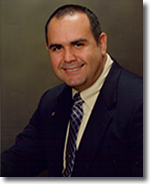
The beauty of blogging is that sometimes you don’t have to if there is nothing to say. This week, though, I have a lot to say as I reflected on what retail pharmacists do every day – give away free advice in the form of recommendations. There are two schools of thought on this – to compensate or not to compensate, but in either case the patient wins when the pharmacist makes a recommendation and they accept it. After all, where else can you get free advice to solve basic medical problems? I wonder if this is why we consistently rank in the top 3 of the Gallup poll for the most trusted profession. Maybe the public is notching the profession high on the trust meter as a reward for beneficial, selfless, non-compensated acts of kindness.
So, when was the last time you took a public opinion ranking to the supermarket and traded it in for a loaf of bread? I’m sure by now you’ve probably guessed that I belong to the school of thought whereby pharmacists should be compensated for their knowledge. And for those pharmacists out there who disagree, I have one question: Was your education free or did you have to pay for it? You see, after having paid for your specialized education by incurring over $100,000 in student loans, you feel obligated to donate that education to end human suffering, every day. Here is another question: how many professionals do you know of that give away their expertise on a daily basis to anyone who asks? Here’s the answer: NONE. And here’s why: They respect themselves too much to do so.
Pharmacy is the only health-care profession that gives away free advice daily to everyone. At work, at the gym, at cocktail parties, or whenever we are asked a drug question, we want to “help out”. Did you know that when the same happens to a physician, attorney, etc. their response is: “Here’s my card, call the office and setup an appointment”? The sad part is that we did it and are still doing it to ourselves by chasing our insecurities to prove we are a specialized, knowledgeable profession. It is how we are programmed in school. While we are so engrossed in our quest for acceptance, the other health-care professions perfected reimbursement issues, networking strategies, and lobbying efforts to recognize their group as a vital part of the medical team, gain prescribing authority and get compensated.
So here we are, pharmacists as the most trusted, knowledgeable, medication experts, and we are severely restricted, highly regulated and told what to do and how to perform our art by non-pharmacists (law makers) while other arms of the health-care team lobby for more autonomy in patient care. This has left the pharmacy profession scratching its head on how to make the leap from the free to the pay-for-service care model in a convincing way and, how to become more autonomous in our specialty regarding patient care. Some pharmacists are slowly figuring it out; however, most are struggling to put the pieces together in a workable way.
To make matters worse, third-party payers don’t willingly want to add another payee to its list – even though pharmacy has demonstrated without a doubt that we can save them, physicians, employers, and the government a ton of money and liability by helping manage chronic disease states like diabetes, asthma, hypertension and dyslipidemia, to name a few. They want this benefit for free.
It is time for the profession’s colleges to change their pharmacy programming methods and revamp its curriculum to prepare all pharmacists to adapt to the new role in or on the patient-care team. We need to get over proving ourselves “worthy” and proceed to the next step of charging for our knowledge. Only when we put a value on our services are others going to put a value on us.
Until next week, be well.
Dion

